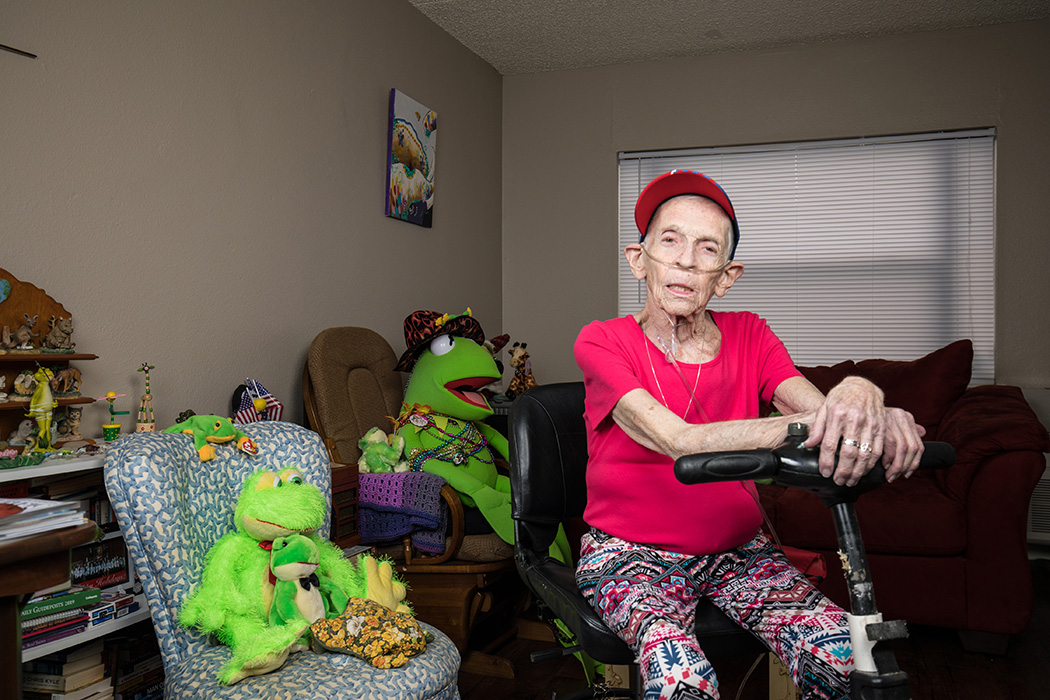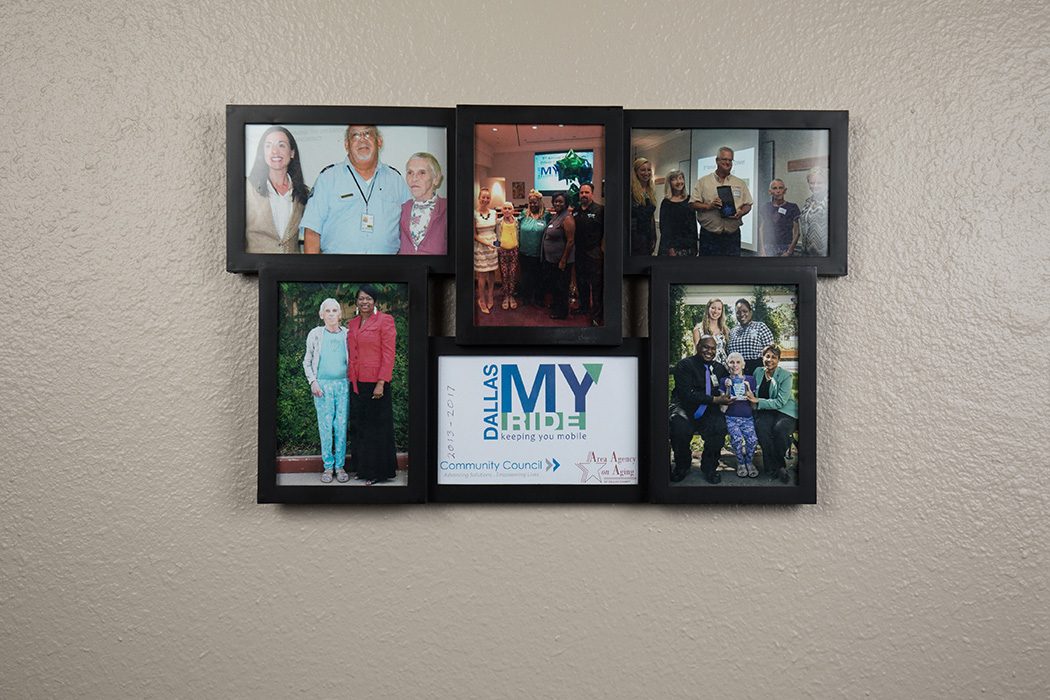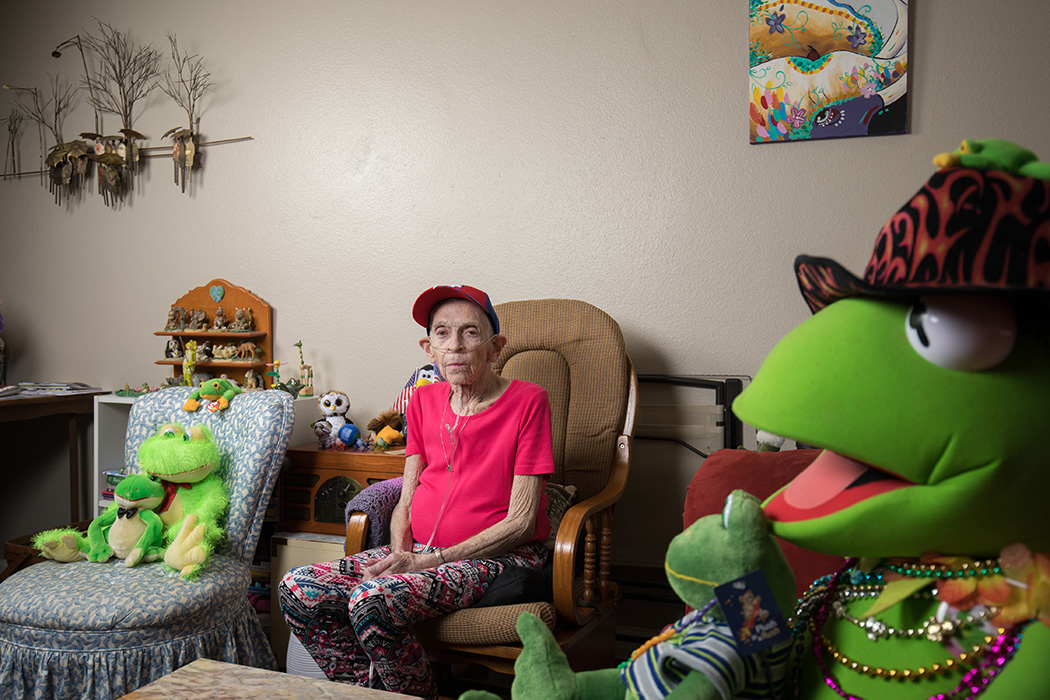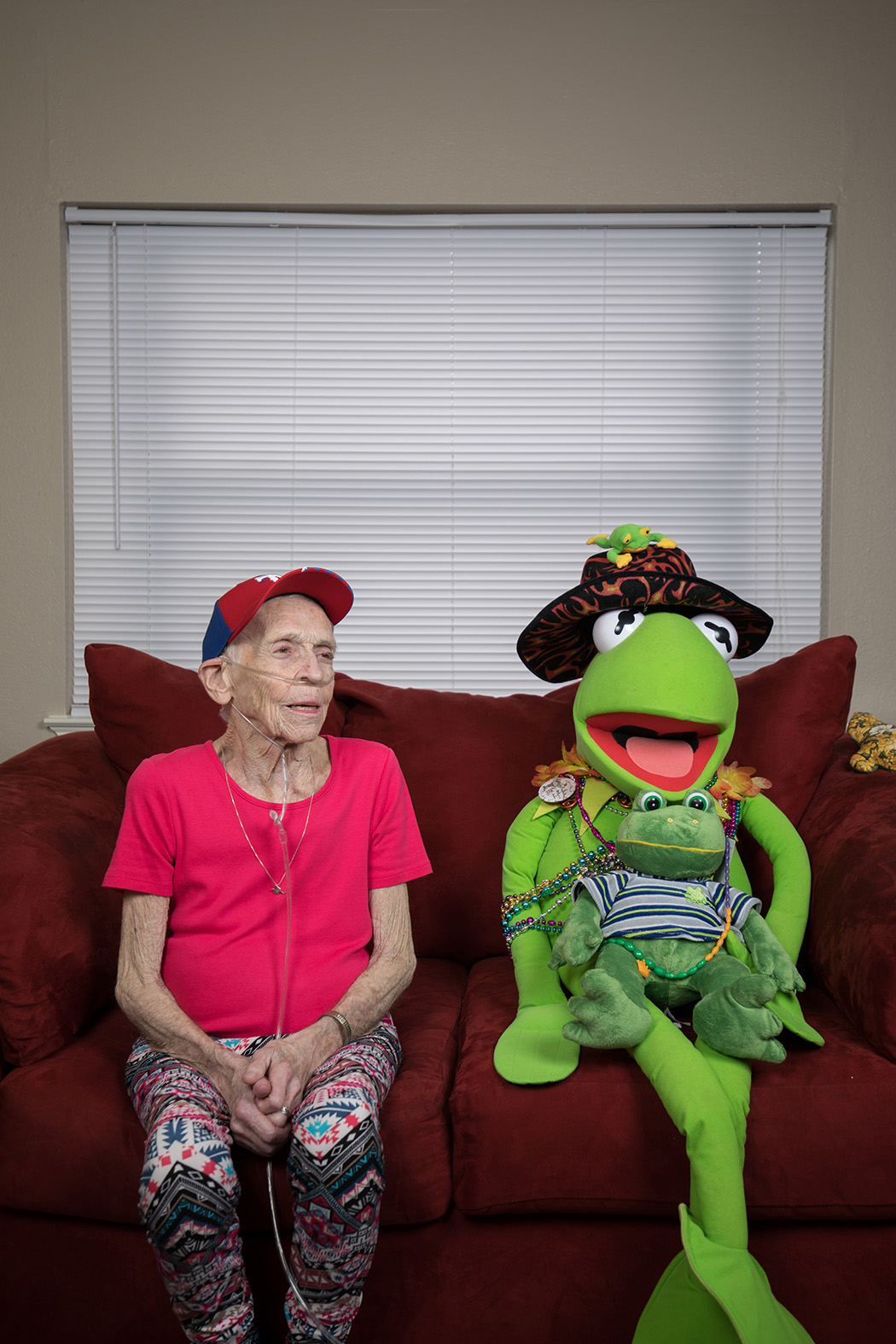
Photography by Rasy Ran.
Annie Jones just wanted a nice dinner at the Spaghetti Warehouse. But she wasn’t about to relegate herself to the back entrance, where the restaurant’s only wheelchair ramp was located. Instead, she and her friends sat outside the downtown eatery in their wheelchairs in front of folding tables, complete with a candle in the center. After their nondisabled friends went inside and ordered takeout, they ate their pasta outside in front of onlookers and police officers.
The protest worked. A few weeks later, the Spaghetti Warehouse installed a wheelchair ramp at the front entrance thanks to supporters like Jones who fight for greater access for people with disabilities.
Jones, an 84-year-old resident at Juliette Fowler Communities, has been a fierce advocate for the disabled community since arriving in Dallas in 1971. As a doctorate student at the University of North Texas, she had hoped to become a professor. But those plans were dashed when she was hit in the back by a basketball while walking her dog. The impact shattered her back and reinjured her spinal cord. She was in a wheelchair at 36 years old and would never work again.
Jones’ bones were weak from years of radiation exposure. After earning her master’s degree in biochemistry from Syracuse University, she worked at a cancer research lab in New Jersey. It felt like a calling after her mother had died of breast cancer years before.
But in the 1960s, doctors knew little about the effects of radiation, and researchers wore only white lab coats for protection. Three years into her job, she developed osteoporosis, spontaneous spinal fractures and a spinal cord injury. She collapsed at work and lost the use of her legs for two years.

My Ride Dallas, an service that provides transportation to older adults and those with disabilities, named their most prestigious award after Annie Jones. (Photo by Rasy Ran)
After the second injury, she wouldn’t walk again for 10 years. During that time, Jones struggled to navigate Dallas in her wheelchair. Sidewalks didn’t have curb cutouts, DART buses didn’t have wheelchair lifts and most restaurants didn’t have accessible ramps. So she joined a local chapter of Americans Disabled for Accessible Public Transit, a national group that organizes disability rights activists to engage in nonviolent civil disobedience.
“I had all this education and all these goals, and the Lord opened doors so I could do something else with my life,” she says. “I didn’t stop. I’m happy we got so much going in Dallas.”
She led her first demonstration in 1988 to protest the lack of accessibility on public transportation. After negotiations for greater access on Greyhound buses failed, Jones and other ADAPT members chained themselves to the front of the vehicles.
They weren’t up there long before police came to remove them. Jones and her friends refused to hand over the key, so officers cut the thick, heavy chains with a saw. Authorities encountered another challenge when their van broke down. They had to transport the protesters to the county jail in, ironically, a DART bus. Jones spent 10 hours in jail and was given a $120 fine for public disturbance.
“I wish I could be sorry, but I’m not. I hope you don’t evict me,” Jones told Juliette Fowler administrators after her arrest.
She didn’t get evicted, and she didn’t let the arrest end her advocacy. Next, Jones pushed for more curb cutouts on city sidewalks and helped start DART’s Paratransit Service. The service specifically serves the elderly and riders with disabilities who are unable to use fixed-route buses and trains.
Her work caught the attention of My Ride Dallas, a program that helps people with disabilities understand their transportation options. In 2013, the organization named its most prestigious award in her honor. The Annie Jones Driver Excellence Award celebrates drivers who go above and beyond to make riders feel safe, comfortable and valued.
“Annie is very humble. She says ‘we’ a lot, but the ADAPT group didn’t get an award named after them,” Juliette Fowler Chief Advancement Officer Ann McKinley says. “Something tells me she was a pretty big leader in all of this. I think Annie stirred the pot pretty good.”







